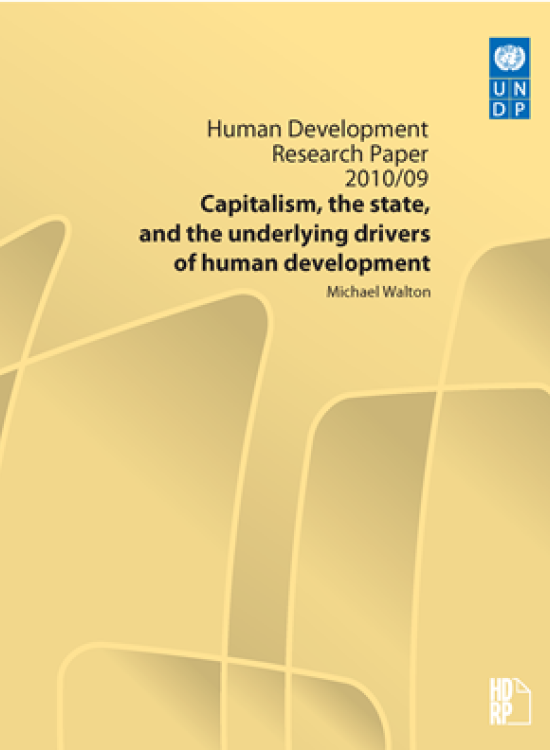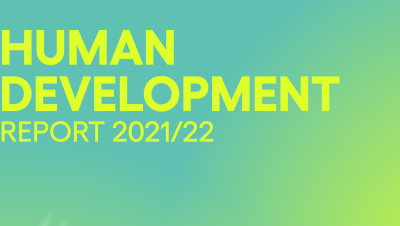Capitalism, the state, and the underlying drivers of human development

Download Report by Language
Document
hdrp201009.pdf
(653.35 KB)
Citation
Walton, Michael. 2010. Capitalism, the state, and the underlying drivers of human development. New York.
Capitalism, the state, and the underlying drivers of human development
Posted on: January 01, 2010
What are the underlying drivers of human development? This essay argues that long-term human development, in incomes, social conditions, security and so on, is fundamentally driven by capitalist dynamics and state functioning. The big issue is not state versus market, or growth versus equity, or dynamism versus security. It is the jointly determined functioning of both capitalism and the state. It is in particular a consequence of the extent to which both capitalist and state behaviour is oligarchic, extractive, exploitative and divisive as opposed to being inclusive, innovative, accountable, responsive and effective at mediating distributional conflict. This can be conceptualized, at a point of time, in terms of the nature of the political equilibrium, or, alternatively, the way in which social contracts work. This is a product of the historically shaped interaction between political and economic elites, and between these and various social groups. Specific policy designs of course matter, whether in terms of market-related policy, regulation, designs for social provisioning. But the ways in policy and institutional choices work, and indeed the choices societies make, is intimately linked to the nature and functioning of the underlying social contracts that in turn shape capitalist dynamics and state behaviour.

